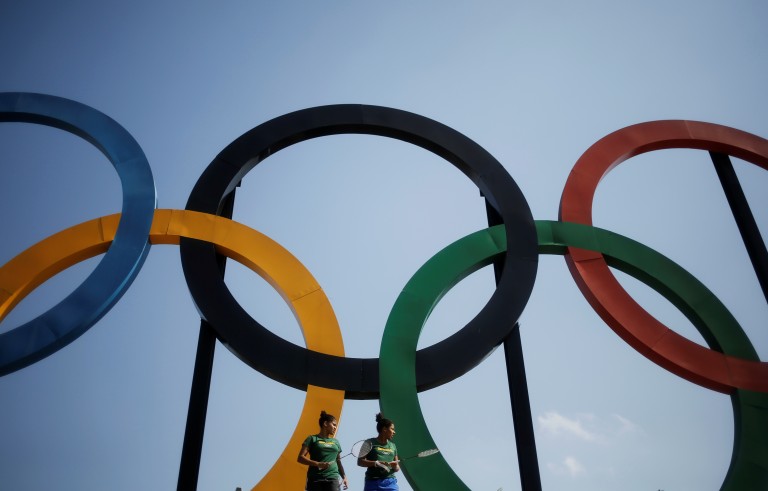HARI SREENIVASAN, PBS NEWSHOUR WEEKEND ANCHOR: Joining me now via Skype from Rio is Dom Phillips of "The Washington Post." Dom, we're not going to ask you sport scores. I know the "Washington Post" has a big team covering that, but let's talk a little bit about what else is happening outside. From the looks of it, the opening ceremonies went off without any major calamities and that's a good start.
DOM PHILLIPS, THE WASHINGTON POST: It is and I wonder if the opening ceremony might mark a change in the mood in Rio. The mood before the games as you'll know has been quite negative for a lot of reasons — the financial problems of the state of government, the impeachment process, concerns about Zika and concerns that promises on cleaning up polluted waters haven't been met. The response to the opening ceremony was hugely positive by many, many Brazilians. It may have even restored a little bit of their bruised national pride.
HARI SREENIVASAN: Let's talk a little bit about some of those problems. Several of the athletes competing, especially in the water-related events are concerned for their own safety. They are concerned for their own health as they have to swim or sail on these waters. What's the likelihood that there are going to be any measures taken between now and the end of the games that could improve that situation?
DOM PHILLIPS: There's very little they can do to improve the situation. For instance, when we're talking about the sailing, the sailing events, which happen four of the seven races in the Guanabara Bay, the best they can do is clear up the floating rubbish that they have in bay. The problem with floating garbage that floats in the bay, and they have a squad of eco-boats doing that. In terms of the quality of the water, the big problem there is the amount of raw sewage that flows into it and that raw sewage is coming from a whole bunch of towns in the metropolitan area of Rio and outside that don't have sanitation. They're not going to be able to put sewage networks into the next few days. So, really, they're cleaning 50 percent of that raw sewage. They were supposed to get to 80 percent. They're not going to do it.

HARI SREENIVASAN: Tell us a little bit about the security infrastructure. I've seen photos and video. It seems there are armed guards posted in lots of different places throughout the city, especially, I'm assuming there's some heightened alertness, just for the possibilities of a terror attack, possibilities of anything going on.
DOM PHILLIPS: That's correct. What you see is a very, very obvious, large military presence throughout Rio on streets, on main highways, metro stations. You'll see armed soldiers standing around outside the athletes' village, along the beach. You'll see soldiers everywhere, one reason being there's been rising violent crime in Rio in the last few months, and another being that a government policy pacify favellas — these are low-income communities — which for years has been dominated by drug gangs, has been sort of crumbling. So, at the entrance of some of these favelas, you will see soldiers stationed.
HARI SREENIVASAN: The economy was supposed to get a big shot in the arm with all the new money, the new investment, the new tourists coming in. What's actually — what you have seen on the ground?
DOM PHILLIPS: The economy is struggling, has been struggling for a long time, and a lot of people have lost their jobs. And whether there has been a big sort of input from the Olympic Games, there's probably been some in Rio, and what we are hearing recently from economists is the economy is beginning to show some signs of a recovery. But that's going to be — there's a counter-balance to that which is going to be as soon as the games are over, a lot of people are going to be made unemployed.
HARI SREENIVASAN: All right. Dom Phillips of "The Washington Post" joining us via Skype from Rio — thanks so much.
DOM PHILLIPS: OK.













